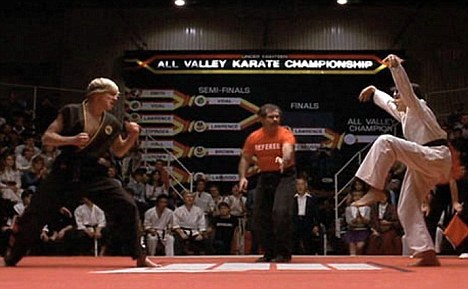Unhelpful advice by experts
Replies
-
rcottonrph1 wrote: »If you aren't hungry in the morning, it is a sign that your metabolism is sluggish. After 8 hours of not eating, you should be hungry!
I don't eat breakfast in the morning. I maintain on 3700. How's that for sluggish?0 -
Not exactly, though. Eat less than what? Move more than what? More/less than one has been?
Yes, that is more than enough information. You're fat, you weigh 300lbs. In order to get there (no underlying medical conditions) you had to eat a lot and exercise very little. So the answer is eat less than you have been (cause its making you fat) and move more than you have been (cause it's making you unhealthy and could contribute to your being fat).
Hence eat less and move more. It works for everyone.
Falsely claiming you need actual numbers to do this, is incorrect and a intelectually lazy arguement. After a certain time numbers will matter, but whatever those numbers are in order to lose you need to eat less than that number and exercise more (for the health benefits).
Less of something is less, and more of something is more.
Math; Here's a overweight persons equeation.
2N + -(E) = F
N = nutrition. E = exercise, and F = Fat. This overweight person is currently eating 2 times as much food as is needed (to maintain a healthy body weight), and that plus negative amounts of exercise equals, they're fat. If they eat less, even if it's less by .10 or something and still have a negative exercise number. F(at) will be smaller, as in they will lose weight.
Math and science.
Sorry, I disagree. And I do know something about math and science. At it's heart the problem is nothing more that conservation of energy, with fat being the stored energy term.
If I'm in a calorie surplus, it's possible to eat less, move more, and still be in a calorie surplus. Not everyone who is fat, indeed I would guess most people, are in a steady-state equilibrium.
Again, it's not that the advice is unsound, it's that it's incomplete.
why would non-fat/obese people need to be in a deficit?
We are specifically referring to people that need to lose weight....
Sorry, you are correct. What I meant to say was that I would guess that most overweight people are in a surplus. That is, it's possible for them to cut some and still be in a surplus.
To make this personal, my very abbreviated story: I, like many people here, was overweight. At my heaviest I was maybe 70 pounds over my "ideal" weight. And like many people here I tried several times to lose weight, with varying degrees of success.
Here's where the "Eat less, move more" mantra bit me, and why I dislike it now--because I didn't know how much more/less! I would overdo it at the start, like many people, and exercise a lot, completely cut out desserts, second helpings, etc. I couldn't sustain this for long, so after a week, or a month, or three months, I would give up.
That's why it was a revelation to me when I discovered calorie counting apps. That's when my light bulb moment occurred. "Oh! So it is just a conservation equation, and here are the numbers! I can do this in a controlled way!" I haven't looked back since.
So the reason I dislike that saying isn't that it's wrong; it's that's it's incomplete, and I think the incompleteness is harmful based on my experience.
Your mileage my vary.0 -
I never eat breakfast, and I don't care what time of day I'm eating. I'll eat when I want to eat. I think "expert" advice should be taken into consideration just like any other kind of advice, especially since for example, Dr. Oz is a so-called "expert" and I would never take his advice, ever.
Also, after seeing how some people's posts are getting flagged, I am really beginning to believe that people do not seem to understand that disagreement/stating an opposing opinion is NOT abuse. Calm down twitchy clickers! 0
0 -
techgal128 wrote: »Oh man, I could never go without my breakfast. It's my favorite meal of the day!
I can work out, shower, get ready & drive to work (@3.5 hours) before breakfast and life is great.
BUT if I don't work out, I have to eat within an hour or I'll feel like death the whole rest of the day.
Bodies are weird.
0 -
rcottonrph1 wrote: »If you aren't hungry in the morning, it is a sign that your metabolism is sluggish. After 8 hours of not eating, you should be hungry!
No. No, it isn't. And no, no you shouldn't (some people are, some people aren't).
0 -
Unhelpful advice given by a so called expert?
I remember a doctor telling me that I had a medical condition that was "kind of similar" to another condition but "not exactly like" said condition.
So I'm like, "Well, what do I do about it?"
"Oh don't worry about it. You might have some issues further down the road though. But don't stress."
end discussion.
WELL THANKS FOR THAT NUGGET OF WISDOM, I NOW KNOW THE SECRETS OF THE UNIVERSE.0 -
There was a study published showing a high carb/sugar breakfast makes the brain slow.
http://www.bbc.co.uk/scotland/brainsmart/brain/ This isnt the particular article I am referring to/thinking of, but similar info. Google will get you info if in doubt.0 -
For me eating protein for breakfast keeps me on track. I'm full till lunch and I don't have afternoon cravings like I use to.0
-
I once had a doctor tell me it doesn't matter how much you eat if you eat lean meat and vegetables only. Pretty sure eating 6 turkeys a day would make you fat, regardless of how lean the meat is lol.0
-
This content has been removed.
-
Pretty much almost anything Dr. Oz has said on his show, basically. (Not all, but most.)
Don't eat after 6pm, eat most of your calories at breakfast, magic supplements that melt fat, magic drinks that melt the pounds off. America is SO DESPERATE to get the most they can for the least amount of effort put in. 0
America is SO DESPERATE to get the most they can for the least amount of effort put in. 0 -
Not entirely weight-related, but tangentially*:
"A gluten-free diet will CURE your narcolepsy!"
Yes. Because wheat is what caused my body to attack itself, and NOT eating will cause the neurons to magically regenerate. Makes all the sense.
*Related because narcolepsy makes working out more difficult, and also lends itself towards mindless eating in a subconscious search for energy through food.0 -
This content has been removed.
-
"It's all calories in vs calories out" ... yea except all calories are not created equally, and interact with hormones differently, and all people are different as well. Pfftt whatever though, it's just some science.0
-

Thread clean-up in progress. Please feel free to use this time to gear up for the next fight. 0
0 -
0
-
This content has been removed.
-
This content has been removed.
-
Not exactly, though. Eat less than what? Move more than what? More/less than one has been?
Yes, that is more than enough information. You're fat, you weigh 300lbs. In order to get there (no underlying medical conditions) you had to eat a lot and exercise very little. So the answer is eat less than you have been (cause its making you fat) and move more than you have been (cause it's making you unhealthy and could contribute to your being fat).
Hence eat less and move more. It works for everyone.
Falsely claiming you need actual numbers to do this, is incorrect and a intelectually lazy arguement. After a certain time numbers will matter, but whatever those numbers are in order to lose you need to eat less than that number and exercise more (for the health benefits).
Less of something is less, and more of something is more.
Math; Here's a overweight persons equeation.
2N + -(E) = F
N = nutrition. E = exercise, and F = Fat. This overweight person is currently eating 2 times as much food as is needed (to maintain a healthy body weight), and that plus negative amounts of exercise equals, they're fat. If they eat less, even if it's less by .10 or something and still have a negative exercise number. F(at) will be smaller, as in they will lose weight.
Math and science.
Sorry, I disagree. And I do know something about math and science. At it's heart the problem is nothing more that conservation of energy, with fat being the stored energy term.
If I'm in a calorie surplus, it's possible to eat less, move more, and still be in a calorie surplus. Not everyone who is fat, indeed I would guess most people, are in a steady-state equilibrium.
Again, it's not that the advice is unsound, it's that it's incomplete.
why would non-fat/obese people need to be in a deficit?
We are specifically referring to people that need to lose weight....
Sorry, you are correct. What I meant to say was that I would guess that most overweight people are in a surplus. That is, it's possible for them to cut some and still be in a surplus.
To make this personal, my very abbreviated story: I, like many people here, was overweight. At my heaviest I was maybe 70 pounds over my "ideal" weight. And like many people here I tried several times to lose weight, with varying degrees of success.
Here's where the "Eat less, move more" mantra bit me, and why I dislike it now--because I didn't know how much more/less! I would overdo it at the start, like many people, and exercise a lot, completely cut out desserts, second helpings, etc. I couldn't sustain this for long, so after a week, or a month, or three months, I would give up.
That's why it was a revelation to me when I discovered calorie counting apps. That's when my light bulb moment occurred. "Oh! So it is just a conservation equation, and here are the numbers! I can do this in a controlled way!" I haven't looked back since.
So the reason I dislike that saying isn't that it's wrong; it's that's it's incomplete, and I think the incompleteness is harmful based on my experience.
Your mileage my vary.
well I think the problem is that the fitness industry complicates this when they come out with bogus things like clean eating, carb cycling, no sugar, no carbs, no carbs after 6 pm, eat breakfast to get metabolism going, etc, etc, etc….
so people think they have to restrict all these foods and weight loss is some complicated formula, kind of like you said in your above post. when in reality if they just moderated the foods they liked, at in a deficit, and focused on hitting calorie/macro/micro goal for the day they would be much happier, and, IMO, it would put them on a path to long term sustainable weight loss…
however, I see where you are coming form…but it really is that simple….0 -
Not exactly, though. Eat less than what? Move more than what? More/less than one has been?
Yes, that is more than enough information. You're fat, you weigh 300lbs. In order to get there (no underlying medical conditions) you had to eat a lot and exercise very little. So the answer is eat less than you have been (cause its making you fat) and move more than you have been (cause it's making you unhealthy and could contribute to your being fat).
Hence eat less and move more. It works for everyone.
Falsely claiming you need actual numbers to do this, is incorrect and a intelectually lazy arguement. After a certain time numbers will matter, but whatever those numbers are in order to lose you need to eat less than that number and exercise more (for the health benefits).
Less of something is less, and more of something is more.
Math; Here's a overweight persons equeation.
2N + -(E) = F
N = nutrition. E = exercise, and F = Fat. This overweight person is currently eating 2 times as much food as is needed (to maintain a healthy body weight), and that plus negative amounts of exercise equals, they're fat. If they eat less, even if it's less by .10 or something and still have a negative exercise number. F(at) will be smaller, as in they will lose weight.
Math and science.
Sorry, I disagree. And I do know something about math and science. At it's heart the problem is nothing more that conservation of energy, with fat being the stored energy term.
If I'm in a calorie surplus, it's possible to eat less, move more, and still be in a calorie surplus. Not everyone who is fat, indeed I would guess most people, are in a steady-state equilibrium.
Again, it's not that the advice is unsound, it's that it's incomplete.
why would non-fat/obese people need to be in a deficit?
We are specifically referring to people that need to lose weight....
Lol....how is that post deemed flag worthy?
who knows….0 -
emily_stew wrote: »Ooh, is this an Airing of Grievances thread? Cuz I got a lot of problems with you people!

0 -
Not exactly, though. Eat less than what? Move more than what? More/less than one has been?
Yes, that is more than enough information. You're fat, you weigh 300lbs. In order to get there (no underlying medical conditions) you had to eat a lot and exercise very little. So the answer is eat less than you have been (cause its making you fat) and move more than you have been (cause it's making you unhealthy and could contribute to your being fat).
Hence eat less and move more. It works for everyone.
Falsely claiming you need actual numbers to do this, is incorrect and a intelectually lazy arguement. After a certain time numbers will matter, but whatever those numbers are in order to lose you need to eat less than that number and exercise more (for the health benefits).
Less of something is less, and more of something is more.
Math; Here's a overweight persons equeation.
2N + -(E) = F
N = nutrition. E = exercise, and F = Fat. This overweight person is currently eating 2 times as much food as is needed (to maintain a healthy body weight), and that plus negative amounts of exercise equals, they're fat. If they eat less, even if it's less by .10 or something and still have a negative exercise number. F(at) will be smaller, as in they will lose weight.
Math and science.
Sorry, I disagree. And I do know something about math and science. At it's heart the problem is nothing more that conservation of energy, with fat being the stored energy term.
If I'm in a calorie surplus, it's possible to eat less, move more, and still be in a calorie surplus. Not everyone who is fat, indeed I would guess most people, are in a steady-state equilibrium.
Again, it's not that the advice is unsound, it's that it's incomplete.
why would non-fat/obese people need to be in a deficit?
We are specifically referring to people that need to lose weight....
Lol....how is that post deemed flag worthy?
So I flagged this as abuse. Self abuse, but still....hehehehe
0 -
This content has been removed.
-
Bingo! kcd1961.0
-
OH dear lord I have had some of the most amazing unhelpful advice ever given to me by my doctors. I feel like part of it is cheating because I did have an undiagnosed thyroid condition but still here are two of my favorites that are relevant:
Me:"I'm exhausted, sleeping 12 hours a day and I still need naps" "Exercise more and you won't be tired." "How do I get energy to exercise if I'm so tired?" "Just exercise."
Sure exercise can really boost your energy, but until it does you're kind of screwed. I don't think any of my doctors every appreciated the fatigue involved with Hashimotos, luckily my PT said okay - one plan for normal days, one plan for bad, and an overarching plan for dealing. I could kiss him, because that has been one of the hardest things for me to keep up with a routine when sometimes bad weeks happen and they are really bad.
Another favorite:
Dr: "You just need to eat better, exercise more."
Me: "How? I think I'm doing okay"
Dr: "Don't watch so much tv, drop things like ice cream."
Me: ".. My family doesn't have a tv and I'm lactose intolerant. I haven't had ice cream in years." ( I may have been quite snarky in that retort, but to be fair the lactose intolerance was on my chart she obviously didn't read.)
Dr: "Well you just need to eat better." (She then left the room done with me.)
Seriously even if the advice is good in theory, it can be useless without taking in the whole picture or providing any education. That's a big part of why I hate generic advice- I feel like it's the difference between route memory of something like calculus and actually understanding it. At least it has been for me- I'm doing much better after learning how to eat "better" rather than just being told to "eat better".0 -
You flagged my post?_Terrapin_ wrote: »Not exactly, though. Eat less than what? Move more than what? More/less than one has been?
Yes, that is more than enough information. You're fat, you weigh 300lbs. In order to get there (no underlying medical conditions) you had to eat a lot and exercise very little. So the answer is eat less than you have been (cause its making you fat) and move more than you have been (cause it's making you unhealthy and could contribute to your being fat).
Hence eat less and move more. It works for everyone.
Falsely claiming you need actual numbers to do this, is incorrect and a intelectually lazy arguement. After a certain time numbers will matter, but whatever those numbers are in order to lose you need to eat less than that number and exercise more (for the health benefits).
Less of something is less, and more of something is more.
Math; Here's a overweight persons equeation.
2N + -(E) = F
N = nutrition. E = exercise, and F = Fat. This overweight person is currently eating 2 times as much food as is needed (to maintain a healthy body weight), and that plus negative amounts of exercise equals, they're fat. If they eat less, even if it's less by .10 or something and still have a negative exercise number. F(at) will be smaller, as in they will lose weight.
Math and science.
Sorry, I disagree. And I do know something about math and science. At it's heart the problem is nothing more that conservation of energy, with fat being the stored energy term.
If I'm in a calorie surplus, it's possible to eat less, move more, and still be in a calorie surplus. Not everyone who is fat, indeed I would guess most people, are in a steady-state equilibrium.
Again, it's not that the advice is unsound, it's that it's incomplete.
why would non-fat/obese people need to be in a deficit?
We are specifically referring to people that need to lose weight....
Lol....how is that post deemed flag worthy?
So I flagged this as abuse. Self abuse, but still....hehehehe
I had to...it was only the right thing to do. Tomorrow you'll be busy and rightly so; and your squat looked good, and you needed a flag. By flagging they send you a flag right? Isn't that what the flagging is for? hehehehe Slow news day here....seriously the squat looked solid, congrats.
0 -
This content has been removed.
-
My doctor telling me to eat fat free or very low fat because my bad cholesterol is too high (but so is my good cholesterol, but I guess it doesn't matter?). Hilarious considering that I eat less than 70g of fat most days, and fat doesn't make any difference in cholesterol levels.0
-
Those differences are negligible in 99% of the population. Look up how a bell curve looks like."It's all calories in vs calories out" ... yea except all calories are not created equally, and interact with hormones differently, and all people are different as well. Pfftt whatever though, it's just some science.
0
This discussion has been closed.
Categories
- All Categories
- 1.4M Health, Wellness and Goals
- 398.4K Introduce Yourself
- 44.7K Getting Started
- 261K Health and Weight Loss
- 176.4K Food and Nutrition
- 47.7K Recipes
- 233K Fitness and Exercise
- 462 Sleep, Mindfulness and Overall Wellness
- 6.5K Goal: Maintaining Weight
- 8.7K Goal: Gaining Weight and Body Building
- 153.5K Motivation and Support
- 8.4K Challenges
- 1.4K Debate Club
- 96.5K Chit-Chat
- 2.6K Fun and Games
- 4.7K MyFitnessPal Information
- 17 News and Announcements
- 21 MyFitnessPal Academy
- 1.5K Feature Suggestions and Ideas
- 3.2K MyFitnessPal Tech Support Questions



















